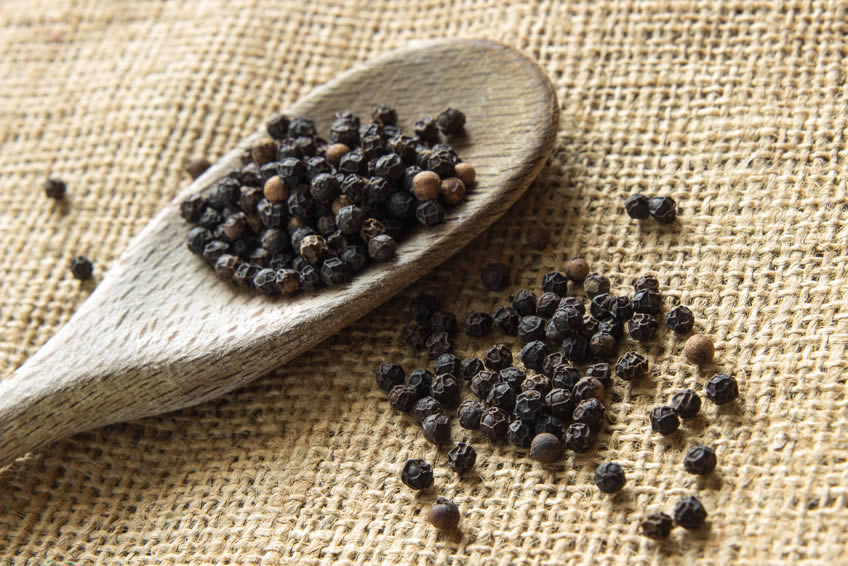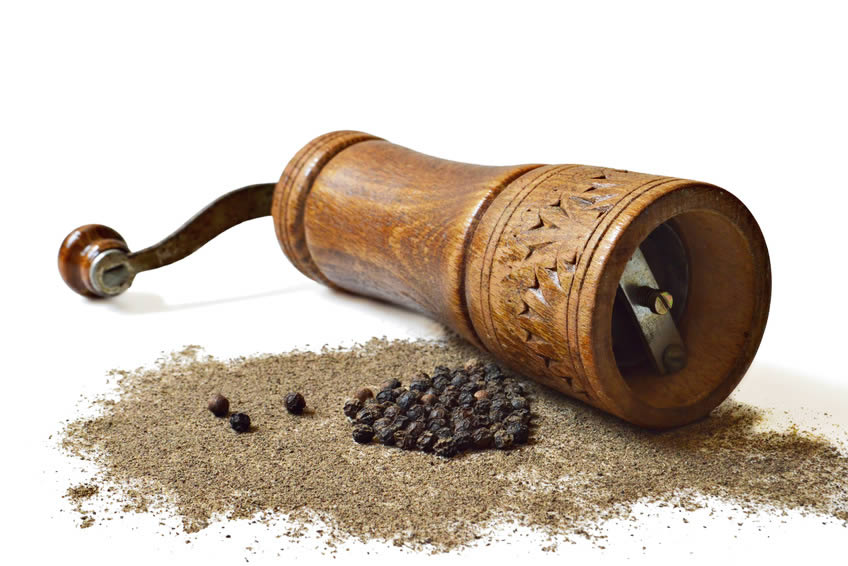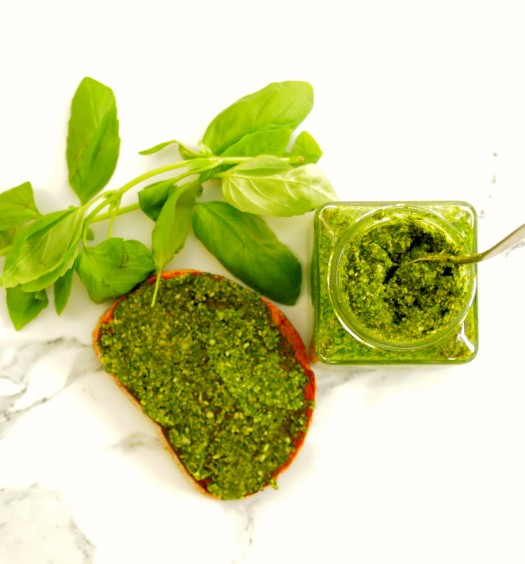We use it to spice up our food and add flavour but there is so much more to black pepper and it can be a nutritional gem. Often referred to as the ‘king of spice’ pepper accounts for a quarter of the world’s spice production and has been highly revered since ancient times both for it’s trade value and medicinal attributes.
Black pepper is packed full of nutrients but you’d have to eat an unrealistic amount to reach the recommended daily levels. The real ‘wow’ factor comes from pepper’s active ingredients, especially piperine, which has been shown to have remarkable health benefits ranging from enhanced nutrient absorption to cardiovascular protection and anti-cancer activities.
Black pepper’s main health benefits
Stimulates digestion: The piperine content of black pepper makes it a great digestive. It stimulates the taste buds to signal the stomach to produce more acid. Stomach acid is essential for digestion as it helps breakdown foods and the acidity triggers the release of digestive enzymes that help complete the digestive process. Inadequate acid levels (which are more common than we think) are a major contributor to flatulence, indigestion, IBS, diarrhea, constipation and heartburn.
Lowers intestinal gas: Pepper consumption has been used for centuries as a natural carminative (helps to prevent flatulence) and recent scientific studies have pointed to its digestive promoting activities as key to it’s ability to discourage gas from forming. Adding black pepper to food is great for those who experience digestive discomfort, bloating and gas.
Anti-cancer: Piperine has been found to be effective against cancer, and this anti-cancer role is heightened when combined with turmeric. It seems that piperine can somehow stall the progression of cancer cells. Studies have mainly focused on breast cancer, but it also shows promise with skin cancers, bowel cancer and colon cancer. The studies use an extract of piperine but their great results persuade us to use pepper liberally.
Weight loss: Studies have found that the outer layer of a peppercorn contains potent phytonutrients that stimulate the breakdown of fat cells so it is great for weight loss. It also helps promote sweating and urination and is a great way to get rid of excess water and toxins in the body. And we don’t just need to supplement to get these benefits, just adding a little pepper to meals impacts the way we metabolise the fat in that meal.
Absorption: Piperine increases the body’s ability to absorb important nutrients from food such as beta-carotenes (the plant form of vitamin A and a potent antioxidant), selenium and B vitamins. Plus it can enhance the actions of other phytonutrients such as curcumin (from turmeric) making them far more powerful in the body. Only a little is needed to achieve great results, we really are talking less than half a teaspoon with a meal.
Boosts brain function: The active ingredients in pepper have been shown to interact with the metabolism of our brain’s neurotransmitters, resulting not only in improved mood and mental state, but also, as the brain absorbs piperine, it shows promise for helping the brain to function properly. Potential benefits of regular pepper intake include preventing or treating Parkinson’s disease, Alzheimer’s, seizures and strokes. Further studies are needed to qualify amounts and specific actions but initial results are very promising.
On top of all of those known benefits, black pepper has anti-bacterial properties and is widely used as an effective remedy for colds and coughs as it’s useful for loosening phlegm and helping relieve a blocked nose. Try adding a dash of pepper to a ginger tea if you’re feeling congested, it really helps.
How to get the most piperine from your pepper
The best option when buying black pepper is to look for whole peppercorns. They not only taste better and are fresher, but the essential oils remain intact. Piperine can become damaged if exposed to oxygen and excess heat so it is always better to grind peppercorns yourself than opting for pre-ground pepper.
Add freshly ground pepper to food before eating rather than adding it to a dish whilst cooking as this helps preserve the nutrients from heat damage.
We love using black pepper with our meals, not just the savoury ones; it also works perfectly with our strawberries and coconut cream and adding a little pepper to juices and smoothies doesn’t just give them a zing but can also help us extract more nutrients from them.






